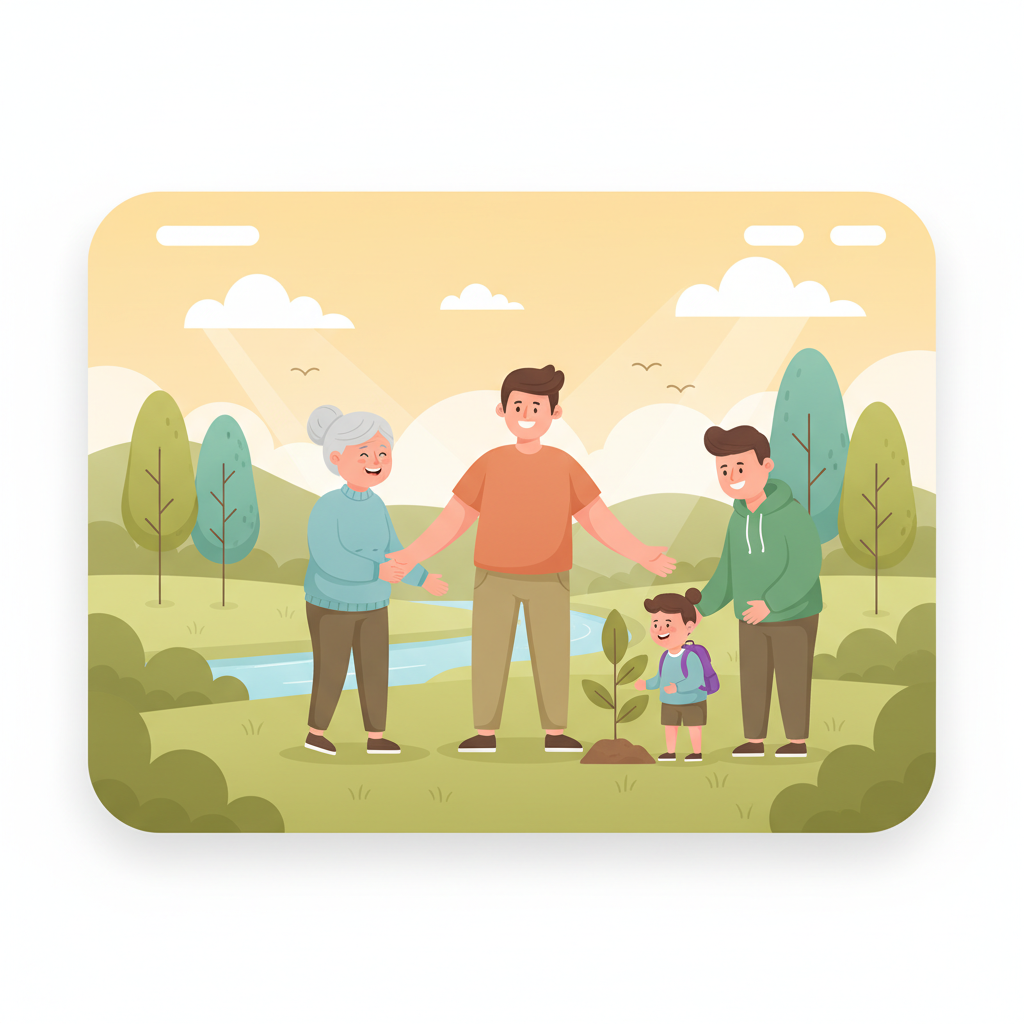Volunteering can be deeply rewarding, but it also brings challenges that sometimes feel overwhelming. As a volunteer, developing emotional resilience is key to maintaining your well-being and continuing to help others effectively.
Fortunately, building emotional resilience does not require major life changes. With the right daily habits, you can strengthen your ability to bounce back from stress and maintain a positive outlook in your volunteering and everyday life.
In this article, you’ll discover simple, practical habits that volunteers can incorporate into their daily routines. These habits have scientific backing and will help you increase emotional resilience over time, improving your mental health and your ability to serve your community.
Your 3 Daily Habits To Increase Emotional Resilience
Habit 1 — Morning Gratitude Practice
Why: Starting your day focusing on gratitude shifts your mindset positively and reduces stress, boosting emotional resilience.
How: Each morning, write down three things you are grateful for. They can be as simple as a good night’s sleep, a smile from a stranger, or the opportunity to volunteer.
Cue: Place a journal or notebook by your bed so you see it immediately upon waking.
Habit 2 — Mindful Moments During Your Volunteer Activities
Why: Mindfulness helps ground you in the present, reducing anxiety and enhancing emotional control.
How: Choose a routine activity—like walking to your volunteer site or sorting materials—and fully engage your senses during a few minutes. Notice sights, sounds, smells, and physical sensations.
Cue: Use an activity you already do regularly as a reminder to practice mindfulness.
Habit 3 — Evening Reflection on Wins
Why: Ending your day by focusing on positive moments reinforces your accomplishments and encourages self-compassion, key for emotional resilience.
How: Before bed, write down one or two positive things from your day, such as a meaningful volunteer interaction or personal progress.
Cue: Keep your gratitude journal or notebook nearby to prompt this reflection before sleep.
Week 1 Schedule
| Day | Morning Gratitude | Mindful Moment | Evening Reflection |
|---|---|---|---|
| Monday | Write 3 things | Mindful walk | Note 1 win |
| Tuesday | Write 3 things | Mindful coffee break | Note 1 win |
| Wednesday | Write 3 things | Mindful volunteer task | Note 2 wins |
| Thursday | Write 3 things | Mindful breathing for 2 mins | Note 1 win |
| Friday | Write 3 things | Mindful lunch | Note 2 wins |
| Saturday | Write 3 things | Mindful walk | Note 1 win |
| Sunday | Write 3 things | Mindful breathing | Note 2 wins |
Troubleshooting
Barrier: Forgetting to do your gratitude or reflection journaling.
Fix: Set alarms or reminders on your phone. Pair journaling with existing routines like brushing your teeth.
Barrier: Finding mindfulness boring or difficult to maintain.
Fix: Start with short intervals (1-2 minutes) and gradually increase time. Use guided mindfulness apps if helpful.
Barrier: Feeling too tired or overwhelmed to reflect positively on the day.
Fix: Focus on even the smallest win or moment of kindness. Remind yourself that positive reflection improves sleep and mood over time.
FAQs
Q: How long before I notice improvements in my emotional resilience from these habits?
A: Consistency is key. Many people begin to feel more balanced and resilient within a few weeks of daily practice of emotional resilience habits.
Q: What if I miss a day or two?
A: Do not worry. Getting back to the habits quickly is more important than perfection. Gently remind yourself of the benefits and resume.
Q: Can I practice these habits while volunteering virtually or from home?
A: Absolutely! These habits work well whether you volunteer in person or remotely since they focus on mindset and self-awareness.
Tracking & Motivation Tips
Keeping a simple habit journal or using an app can help you track your emotional resilience practices daily. Marking your progress, no matter how small, creates motivation. Celebrate small wins, like completing a week of gratitude journaling, and share your successes with fellow volunteers or friends for encouragement.
Key Takeaways To Increase Emotional Resilience
Increasing emotional resilience as a volunteer is achievable by building simple daily habits focused on gratitude, mindfulness, and positive reflection. These practices help manage stress, improve mood, and build your mental strength over time. Remember, emotional resilience develops as you consistently invest in these habits, making you more capable of handling life’s challenges while continuing to support your community effectively.




